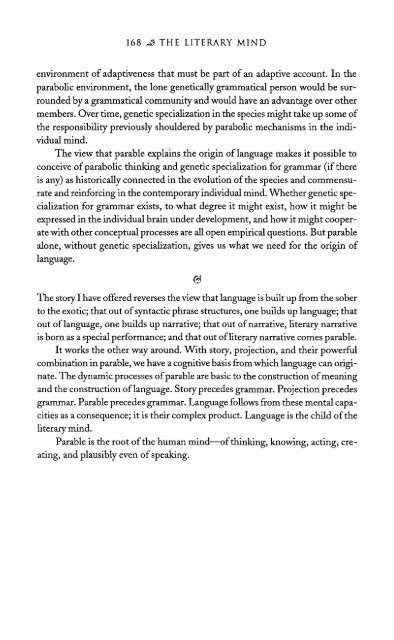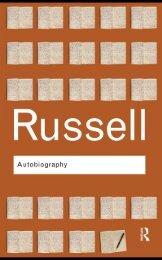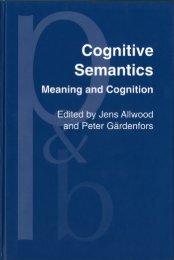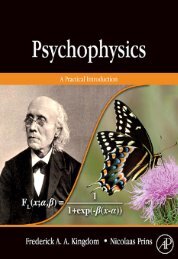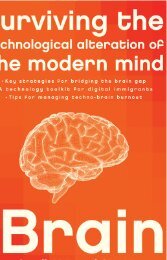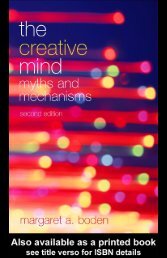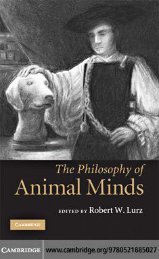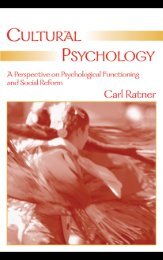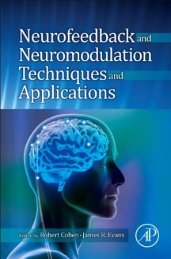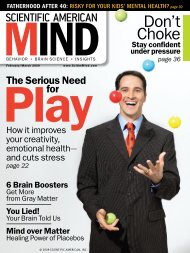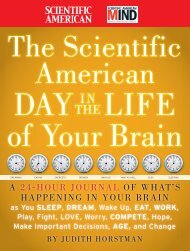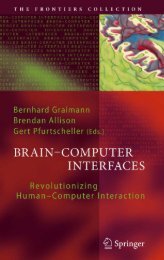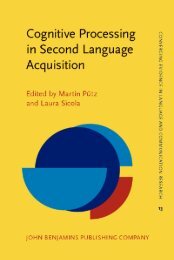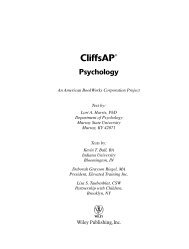The Literary Mind.pdf
The Literary Mind.pdf
The Literary Mind.pdf
Create successful ePaper yourself
Turn your PDF publications into a flip-book with our unique Google optimized e-Paper software.
168 THE LITERARY MIND<br />
environment of adaptiveness that must be part of an adaptive account. In the<br />
parabolic environment, the lone genetically grammatical person would be surrounded<br />
by a grammatical community and would have an advantage over other<br />
members. Over time, genetic specialization in the species might take up some of<br />
the responsibility previously shouldered by parabolic mechanisms in the individual<br />
mind.<br />
<strong>The</strong> view that parable explains the origin of language makes it possible to<br />
conceive of parabolic thinking and genetic specialization for grammar (if there<br />
is any) as historically connected in the evolution of the species and commensurate<br />
and reinforcing in the contemporary individual mind. Whether genetic specialization<br />
for grammar exists, to what degree it might exist, how it might be<br />
expressed in the individual brain under development, and how it might cooperate<br />
with other conceptual processes are all open empirical questions. But parable<br />
alone, without genetic specialization, gives us what we need for the origin of<br />
language.<br />
<strong>The</strong> story I have offered reverses the view that language is built up from the sober<br />
to the exotic; that out of syntactic phrase structures, one builds up language; that<br />
out of language, one builds up narrative; that out of narrative, literary narrative<br />
is born as a special performance; and that out of literary narrative comes parable.<br />
It works the other way around. With story, projection, and their powerful<br />
combination in parable, we have a cognitive basis from which language can originate.<br />
<strong>The</strong> dynamic processes of parable are basic to the construction of meaning<br />
and the construction of language. Story precedes grammar. Projection precedes<br />
grammar. Parable precedes grammar. Language follows from these mental capacities<br />
as a consequence; it is their complex product. Language is the child of the<br />
literary mind.<br />
Parable is the root of the human mind—of thinking, knowing, acting, creating,<br />
and plausibly even of speaking.


